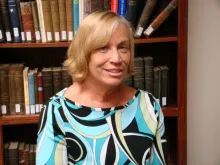Servant or King: No Favoritism With God

Because of a person’s perceived status in life, many people treat them differently than they do people in different situations.
Recently I watched an old movie with Shirley Temple in it called The Little Princess. Temple was 11 when she starred in that movie. She played Sara Crew, a little girl who was left by her father in an exclusive seminary for girls, due to her father having to go to Africa with the army.
The head mistress of the school at first did not want to take the little girl until she found out that her dad was wealthy. That changed everything!
All the girls had to move down the dining table while little Sara was asked to sit at the head of the table beside the mistress for dinner. That was a place of honor! Sara received special treatment because of her dad's money. She even was given the best bedroom to stay in. But that was not to last.
For Sara, things turned for the worst as word came that her father died and left her with nothing. She was stripped of her nice clothes and her fancy room. She was left with a room in the attic and servant's clothes. To make matters worse, Sara lost her place at the head of the table and was no longer even allowed to sit at the table with the girls. She had to eat in the servant's quarters and begin to work as a servant.
While this is just a movie, all too often we see this type of thing in life. It's called "favoritism." Because of a person's perceived status in life, many people treat them differently than they do people in different situations.
Favoritism is partiality or bias. To show favoritism is to give preference to one person over others with equal claims. It is similar to discrimination and may be based on conditions such as social class, race, wealth, clothing, etc.
Showing favoritism is against our Great Creator's character. When Christ walked the earth, he demonstrated this character as he reached out to the poor and the destitute. The Bible teaches us that showing favoritism is a sin. Paul was inspired to command leaders in the Church to not show favoritism: "I charge you, in the sight of God and Christ Jesus and the elect angels, to keep these instructions without partiality, and to do nothing out of favoritism" (1 Timothy 5:21).
Even so, at times we're all guilty of showing favoritism. We make judgments of others based on selfish, personal criteria rather than seeing others as God sees them. We also can be victims of favoritism as little Sara was in The Little Princess.
We're admonished: "If you really keep the royal law found in Scripture, 'Love your neighbor as yourself,' you are doing right. But if you show favoritism, you sin and are convicted by the law as lawbreakers" (James 2:8-9). Leviticus 19:15 teaches, "Do not pervert justice; do not show partiality to the poor or favoritism to the great, but judge your neighbor fairly."
We must treat people the way God sees all of us. Ephesians 6:9 tells us that "there is no favoritism with Him."
Of course the movie of little Sarah comes to a happy ending. I won't spoil it for you if you haven't seen it.
Our story also ends up great if we obey God. We will all have the opportunity to hear God say to us, "Well done good and faithful servant." We all have the same opportunity to be born into His family.




